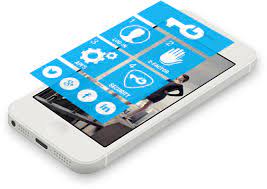
Smartphones have become an integral part of daily life, making it essential to safeguard them from malicious software such as viruses, computer worms, Trojans, ransomware and spyware. There is no shortage of threats out there; be it viruses, computer worms, Trojans, ransomware or spyware – you should always be on guard against potential issues.
To prevent data leakage, it's best to only grant apps the permissions they require in order to function correctly. Unfortunately, this can be challenging as many apps request multiple different permissions.
?What are passwords and how can they be well encrypted
Your smartphone contains sensitive personal information like passwords, account numbers, emails, text messages and photos that if stolen or hacked can lead to identity theft, financial loss and other serious outcomes.
Passwords are one of the best ways to protect your phone. A strong password will be difficult for hackers to crack, keeping both your phone and its data safe from harm.
A secure phone password should be at least six characters long and contain a combination of uppercase and lowercase letters, symbols, and numbers. It should also be unique across all accounts.
Passphrases are an ideal option when using uncommon words or combination of words, and you can further strengthen their security by arranging them in an uncommon order and using random character strings. Doing this prevents dictionary hacking and brute force attacks from succeeding. Furthermore, remember to regularly change your password – either through Settings on your device or with a password manager app).
?Is two-factor authentication still relevant
Two-factor authentication provides an extra layer of protection to your account, app or service by requiring you to complete a verification step such as calling, SMSing, receiving a one-time passcode via text message, pushing notification with biometrics and more. It's much more secure than using just your single password alone.
It's also better at blocking malware email attachments or man-in-the-middle attacks, where hackers spoof your personal device to access your account. Furthermore, it helps guard your phone against open wifi networks where hackers could steal or phish your username and password.
In general, two-factor authentication (2FA) relies on three elements: something you know (like a password), something you possess (like a smartphone), and something physical like your fingerprint. Some smartphones even feature built-in cameras or iris scanners for facial recognition or voice recognition purposes.
?How can a mobility security company do encryption
Encryption is an effective way to protect your phone, as it ensures no one can read the data stored on it without your knowledge. This makes it difficult for hackers or snoopers to obtain sensitive information like credit card numbers or social security numbers.
Encrypting your phone can be done through two main methods: full disk encryption and file encryption. While full disk encryption offers complete protection for all of your data on the device, there are some drawbacks such as a slight performance hit and inability to decrypt files that have been deleted.
iOS devices by default employ file encryption, which is activated when you set a passcode. To confirm its activation, open Settings > Face ID & Passcode and look for "Data protection is enabled." Android devices utilize full disk encryption which must be turned on before you can encrypt your phone.
?How can you make a backup with the help of a company
One of the most essential ways to safeguard your phone is regularly backing up its data. Doing this allows you to recover your information in case of an accident or theft.
What type of backup you choose should depend on the data type and frequency it changes. Backups can be stored either electronically on a computer or external hard drive.
Additionally, creating a local backup with encryption can add an extra layer of protection. That way, only you have access to it and nobody else.
Android devices running version 2.2 and later have the capacity to automatically back up certain types of data, such as contacts, calendars, and SMS messages. This is an invaluable option for those who like to keep their personal details centralized.